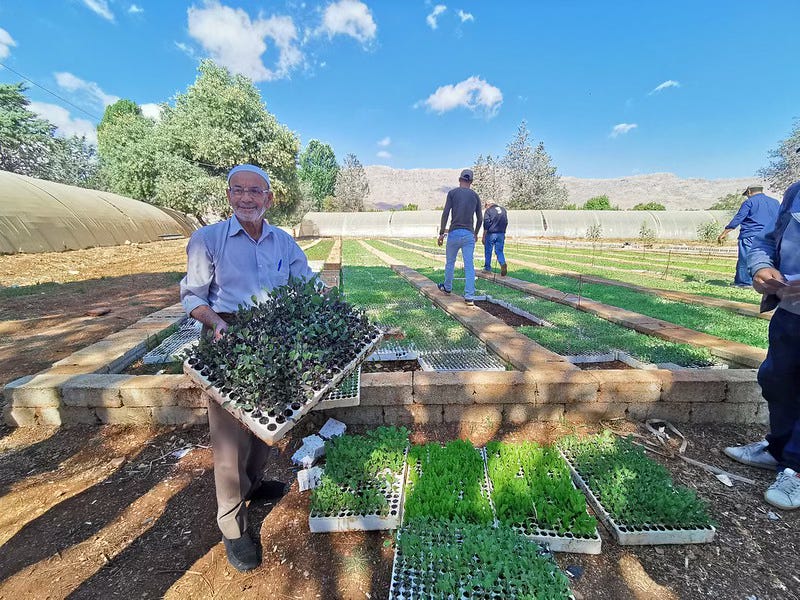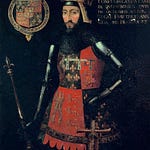The UN Brief interviewed legal expert and scholar Dr. Joseph Cannataci, UN Special Rapporteur on the Right to Privacy in 2021. We spoke about the right to privacy on health data, medical records, surveillance, and how cyberspace regulation needs the political will of UN country-members to create a proper legal framework.
Subscribe!
What do you get?
Thousands of great stories, exclusive interviews with diplomats, UN Officials, and tech leaders + all you wanted to know about the UN, the EU, and new and emerging tech but were afraid to ask. We take you inside the halls of decision-making.
Delivered to your inbox every week. No annoying ads, no reselling of your data.
Participate in our editorial council, be invited to our fireside talks in Geneva, New York, Paris, London, and many more cities that are in our tour plans for 2025.
Impress your colleagues and frenemies with your in-depth knowledge of tech policy happening at the heart of the UN, and be on top of the data governance debate that powers the global digital economy. It happens at the UN and moves the world.
Contribute to our panels with UN officials and diplomats. Discover impact investing opportunities in the most amazing parts of the world. Be a part of change.
Ask questions. Engage. Discuss the pressing issues of the day with like-minded smart global thinkers. Gather around the global village and say yes to international cooperation. Make the world a better place one conversation at the time.
Plus:
Access our entire archives with the best unscripted interviews with UN officials and diplomats. Here is a taste of what you have been missing! 300 plus interviews, 350+ newsletters, all candid conversations with UN and EU officials, tech leaders, and top diplomats.
Farewell 2024
We want to thank you, our loyal readers, the many reliable sources, press officers, partners, advisors, and colleagues who contribute to the success of The UN Brief.
Here is a partial list of the ones that provide us encouragement by following and liking us on social media, and subscribing to The UN Brief: the Mission of Netherlands to the UN in New York and Geneva; Spanish, Swiss, and French Missions and government officials; diplomats and MFA staff from Brazil, Portugal, Finland; Norway Missions to the UN; the Swedish consular representations in various African countries; the Swedish ambassador to the Netherlands; Danish, German, and Brazilian ambassadors and UN officials in Africa, Asia, and Latin America; the UK and US Missions to the UN, both in New York and Geneva.
They also often provide timely information on the interventions of their government representatives at the General Assembly, the Security Council, ECOSOC, the UN Human Rights Council, WHO, WIPO, WTO and other UN system agencies.
Our special thanks to the UN press office for their perfectly organised press conferences, and online outreach, with knowledgeable experts. And the UNDP team in Geneva, as well at the ILO press relations teams, always on top of news hooks to bring the UN stories to our audiences of early and mid-career diplomats.
Many UN agencies are grappling with the the digital transformation of the press relations function, our heartfelt thanks to press officers who make themselves and their experts available promptly including UNDP, UNEP, WIPO, WFP, WTO, UNIDIR, UNIDO, UNITAR, and many many others (the list is long and would not fit in this newsletter), and the UN resident coordinators in Africa and other regional offices.
Thank you for the follows, likes, and subscriptions to our newsletter.
THE UN BRIEF is a reader-supported publication. To receive new posts and support our work, consider becoming a paid subscriber.
Why I started The UN Brief?
Because I have worked for the UN as a news producer, writer and editor, and was Officer-in-Charge of the Portuguese Language Section of UN Radio, at UN Headquarters in New York, and believe that international cooperation is more important than ever. I started my training and career as a journalist in 1979 at the Brazilian national news broadcast network, then called Radiobras.
My father was an award-winning journalist, Premio Esso, the first prime-time news anchor on TV networks in Brazil, and bureau chief of Journal do Comercio in Brazil’s capital.
He was my mentor. I grew up in the news business surrounded by news people, during Brazil’s military dictatorship which was not an easy time to be a journalist.
Journalists were being killed, raped, and tortured. Many left the country.
After a career in the performing arts, dancing on stages in Brasilia, Madrid, London, Paris, and New York City, I returned to university to study Political Science and Media, where I received a broad liberal arts education at Columbia University in New York City, studying American Politics, International Trade, Foreign Affairs, Art History, News Media, Digital Communications, and Political Campaigns and the Role of the News Media in the US. I graduated in 2001. I continued to cover these fields of knowledge as a journalist.
While attending Columbia I worked for Bloomberg TV, left to join a startup that had as its mission to start the digital transformation of government services. We raised $60 Million USD, from various venture capital firms in Silicon Valley, including KKR.
After that I was hired by UN Radio to produce their daily news and produce a new website that was updated daily, (the first web pilot for the entire department with the blessing of Shashi Tharoor, Kofi Annan’s Assistant Secretary General for Public Information).
Then again turned my talents to working with technology companies and universities, designing and implementing their press relations strategies and external communications.
But as a journalist, and raised by a broadcast news father who insisted that we think holistically and ethically, I was aware of multicultural issues in news writing from an early age.
I launched The UN Brief to look at the UN system, other multilateral bodies, from the perspective of new and emerging technologies, and we are growing by leaps and bounds. So, thank you for your loyal readership.
I believe my success came from looking at a topic from multiple angles and in historical context. My father and my mother were well-read and introduced me and my sisters to the Nouvelle Vague in French Cinema, African Art, Antonioni, Fellini, Stanley Kubrick, the Impressionists, Cubism, Jorge Luis Borges, Russian Ballet,Grimm’ Fairy Tales, Baroque Art. I had a very well-rounded education.
In the 70’s my dad started speaking of the impact of new and emerging technologies on how we create, distribute, and consume news.
He introduced me to Alvin Toffler’s The Shock of the Future, Ken Auletta, Noam Chomsky lectures at MIT, and Marshall McLuhan media theory.
These topics still fascinate me. I hope to share more of that in 2025 with you.















Share this post